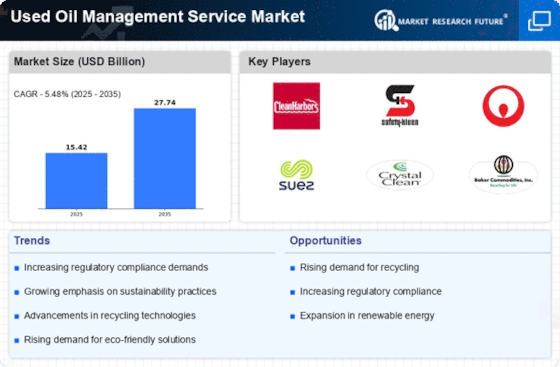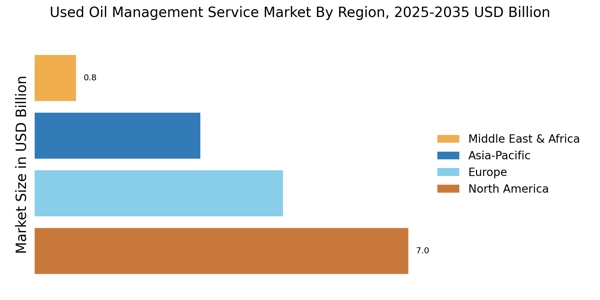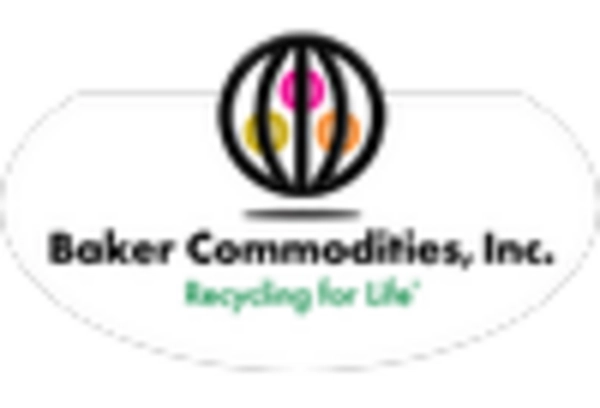Rising Demand from Automotive Sector
The automotive sector is a significant driver of the Used Oil Management Service Market. With the increasing number of vehicles on the road, the volume of used oil generated is also rising. This sector requires efficient management of used oil to ensure compliance with environmental regulations and to promote sustainability. As automotive manufacturers and service providers become more aware of their environmental impact, they are increasingly turning to specialized used oil management services. This trend is likely to continue, with projections indicating that the automotive industry could account for a substantial share of the used oil management market, further propelling its growth.
Regulatory Compliance and Sustainability
The increasing emphasis on environmental regulations is a primary driver for the Used Oil Management Service Market. Governments worldwide are implementing stringent regulations to ensure proper disposal and recycling of used oil, which is hazardous to the environment. Compliance with these regulations is not only a legal obligation but also a corporate responsibility for many businesses. As a result, companies are increasingly seeking professional used oil management services to avoid penalties and enhance their sustainability profiles. The market for used oil management services is projected to grow as organizations prioritize compliance and sustainability, with estimates suggesting a compound annual growth rate of around 5% over the next few years. This trend indicates a robust demand for services that ensure environmentally responsible practices in the management of used oil.
Growing Awareness of Environmental Impact
There is a growing awareness of the environmental impact associated with improper disposal of used oil, which serves as a significant driver for the Used Oil Management Service Market. Public and corporate consciousness regarding environmental sustainability is leading to increased demand for responsible waste management practices. As consumers and stakeholders advocate for greener practices, businesses are compelled to adopt effective used oil management strategies. This heightened awareness is fostering a culture of accountability, where companies are more likely to invest in professional services to manage their used oil responsibly. Consequently, this trend is expected to contribute positively to the market's growth trajectory in the foreseeable future.
Shift Towards Integrated Service Solutions
The trend towards integrated service solutions is becoming increasingly prominent within the Used Oil Management Service Market. Companies are recognizing the benefits of consolidating their waste management needs under a single provider, which can lead to cost savings and improved efficiency. Integrated services often encompass collection, recycling, and disposal, providing a comprehensive approach to used oil management. This shift is particularly appealing to industries with high volumes of used oil, such as automotive and manufacturing sectors. As businesses seek to streamline operations and reduce their environmental footprint, the demand for integrated service solutions is expected to rise, potentially driving market growth in the coming years.
Technological Advancements in Oil Recovery
Technological innovations play a crucial role in shaping the Used Oil Management Service Market. Advanced oil recovery techniques, such as solvent extraction and thermal desorption, are enhancing the efficiency of used oil recycling processes. These technologies not only improve recovery rates but also reduce operational costs, making it more economically viable for businesses to engage in used oil management. The integration of automation and data analytics in oil recovery processes is also streamlining operations, thereby increasing the appeal of professional services. As these technologies continue to evolve, they are likely to attract more companies to the used oil management sector, potentially leading to a market expansion that could exceed current growth projections.

















